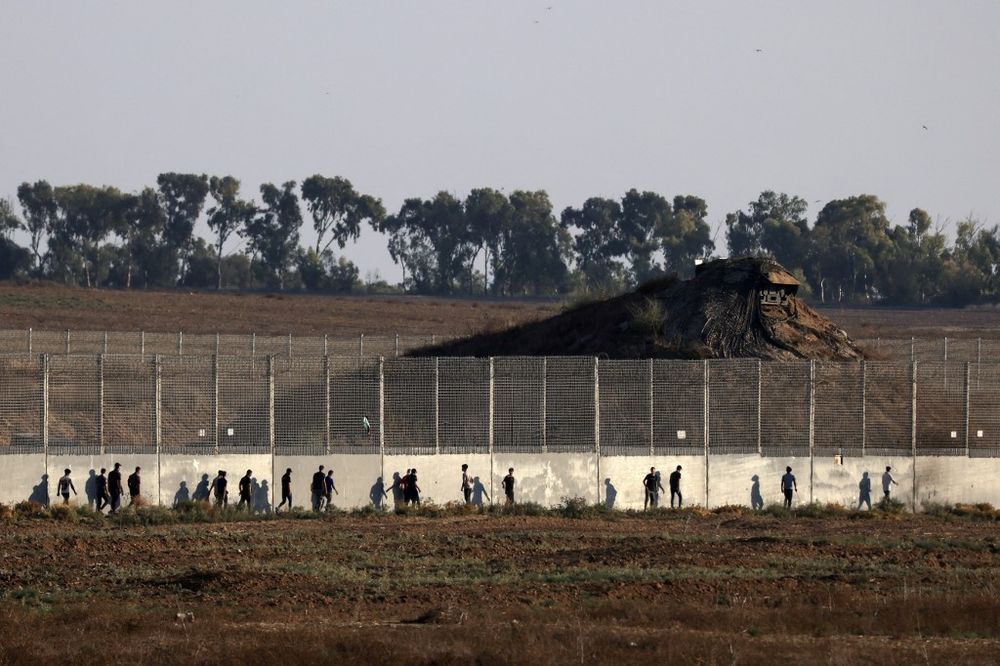Israel’s attacks on Khan Younis, southern Gaza, have intensified this week, where thousands have been taking refuge since the beginning of the war, especially those forced to flee from the north.
Hamas has defended Qatar following accusations from Israeli Finance Minister Bezalel Smotrich, who alleged Qatar was biased and supportive of Hamas’ interests.
Taher Nunu, a senior figure in Hamas, issued a statement condemning the attack on Qatar. He said the country “played an active political role to stop the aggression on our people and advance the exchange file.”
Nunu criticised Smotrich’s remarks, interpreting them as “indicative of Israel’s intention to obstruct any potential deal” for the release of Israeli captives.
The leader of Israel’s National Religious Zionism party made the unsubstantiated claims against Qatar on Thursday, accusing the Gulf State of sponsoring terrorism and being responsible for the attacks against Israelis on October 7.
Smotrich took to X to charge Qatar with being a country that “supports terrorism and finances terrorism,” claiming that it “is the patron of Hamas and is largely responsible for the massacre committed by Hamas of Israeli citizens.”
He further said that Qatar will have no involvement in Gaza’s post-Israeli onslaught future.
The ultra-far-right leader’s accusations were in response to an earlier X post from Qatar’s Ministry of Foreign Affairs spokesman, Majed bin Mohammed Al Ansari, who said that his nation was “appalled” by leaked remarks from Israel’s Prime Minister – denouncing Qatar’s mediation efforts as being “problematic.”
“We are appalled by the alleged remarks attributed to the Israeli Prime Minister in various media reports about Qatar’s mediation role. These remarks, if validated, are irresponsible and destructive to the efforts to save innocent lives, but are not surprising.”
Al Ansari was commenting on previous reports from Israeli media about confidential recordings from a meeting held in Tel Aviv. In this meeting, which took place on Tuesday.
In the leaked audio, Netanyahu is heard stating to the families of captives, “Qatar, from my point of view, is no different in essence than the United Nations… and the Red Cross, [Qatar] is even more problematic.”
He expressed his openness to dialogue with any party that could aid in the return of the captives, saying, “I have no illusions about them. They have leverage [over Hamas]… Because [Qatar] funds them.”
These comments were made despite Qatar’s critical role in the mediation efforts that led to the release of Israeli and foreign captives held by Hamas in Gaza. These efforts followed the unexpected attack on October 7, 2023, which Israel has frequently cited as justification for its extensive military campaign.
Al Ansari highlighted Qatar’s effective mediation last year, conducted in conjunction with Egypt, which culminated in a brief ceasefire from November 24 to December 1.
This comes following reports that Hamas has ceased negotiations over a new prisoner swap deal with Israel, saying they demand the complete withdrawal of Israeli forces from the Gaza Strip as a primary condition in any initial phase of a potential agreement.
This halt in negotiations was conveyed by Qatar to Israel on Thursday, according to reports from Israeli media.
However, Israeli officials assert that there is still potential for reaching an agreement, stating that the possibility has not been entirely dismissed. They are trying to develop more comprehensive proposals, though a near-term resolution appears unlikely.
Previous reports indicated that Israel and Hamas had tentatively agreed on a proposal. It entailed the swapping of Palestinian detainees and captives, and a short-term ceasefire lasting around a month.
Nonetheless, the plan’s execution has been delayed due to divergences over future actions and Hamas’s demands for an end to the Israeli assault on Gaza.
Another suggested plan presented to Hamas included Israel’s demand for the removal of six key figures from Gaza.
Hamas firmly rejected it and had previously said it would release all captives in exchange for a ceasefire, which was rejected by Israel.







